Disclosure: Privacy Australia is community-supported. We may earn a commission when you buy a VPN through one of our links. Learn more.
VPN vs HTTPS
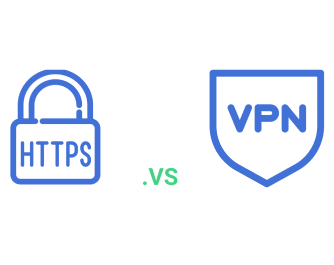
Today’s digital landscape is one fraught with privacy concerns and malware threats.
Surfing the internet safely and securely requires more steps than ever before, and to make things worse, most folks don’t know which encryption or security steps they should prioritize.
Two of the most common technologies that can help you safely surf the Internet are VPNs and HTTPS encryption.
Many people look at both tools as if they’re direct competitors. But thinking of it in terms of VPN vs HTTPS is looking at it the wrong way. In fact, both VPNs and HTTPS encryption provide valuable layers of security that can go a long way toward helping you remain secure even on today’s web.
What is a VPN?
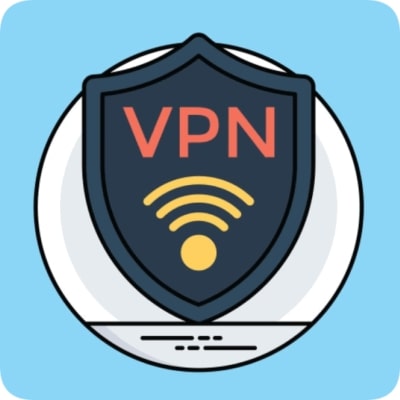
Let’s take a look at what both VPNs and HTTPS are and how they differ.
A VPN, which stands for virtual private network, is essentially a type of technology that can alter your IP address and create a secure tunnel between your computer or mobile device and a specialized VPN server.
It’s a type of encryption that makes it much more difficult for your IP address to both be detected or identified correctly and hijacked.
These days, many people are interested in VPNs because they boost overall digital privacy and can also provide some limited defense against digital attacks, like DDoS attacks.
A VPN can encrypt your browser traffic and encrypt any traffic that comes to or from your device. This also means that any web traffic you send is encrypted and hidden from your Internet service provider and any other potential third parties that might be trying to snoop on your data.
As a result, VPNs can be used for general security and privacy or to view different content that might be locked out of your IP address due to native country restrictions. By hiding your IP address, a VPN will also protect several aspects of your personal information from being detected by hackers, including:
- what country you live in
- what your city of origin is
- who your Internet service provider is
- potentially other data like your name or physical address
VPNs are usually installed manually by different users or purchased as part of a service from a VPN provider.
What is HTTPS?
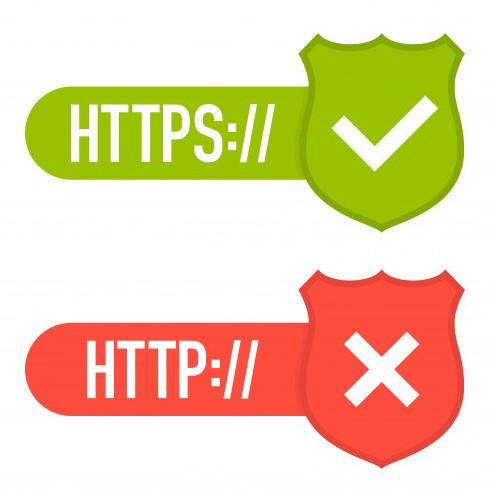
HTTPS stands for hypertext transfer protocol secure.
This is a type of Internet connection protocol specifically developed to encrypt data and make data transfer more secure between websites and web browsers.
At the beginning of a typical web address, you’ll see a few letters: either HTTP or HTTPS. HTTP is the less secure of these two types of protocols while HTTPS is a much more advanced and secure version of the former.
Whenever you visit a website secured with HTTPS level encryption, it means it’s a more secure site to visit and your data is at less risk of being snooped or stolen by a would-be hacker.
HTTPS encryption uses a special SSL certificate – which can be purchased by website owners for the benefit of themselves and their visitors – that’s basically digitally placed on top of regular HTTP protocols.
When HTTPS encryption is used, MITM, or man-in-the-middle, attacks are essentially impossible except for a few edge cases. It also helps to ensure that any two parties involved in a data transaction are legitimate or otherwise who they claim to be.
Any legitimate or reputable website will have HTTPS encryption for the good of its visitors. It’s a necessary part of encryption for any serious online website due to the pervasiveness of malware and identity theft viruses.
VPN vs HTTPS
Let’s break down the big difference between these two types of encryption.
- With HTTPS encryption, all security is handled by the owner of the website you choose to access. On the flipside, VPN security is computer-based, so you could potentially have multiple VPN secure computers visiting the same HTTPS-encrypted website
- HTTPS security protects any data transfers between your device and a specific website you can access. Comparatively, VPNs secure all the data transferred between your device and any website you view on the Internet. Think of it as differences in security origin; HTTPS is website-based while VPNs are computer-based
- VPNs can conceal your geo-location (where you are in real life) and help you get through various censorship measures. HTTPS encryption does nothing of the sort and is more focused on preventing malware attacks are snooping
- Besides all these differences, HTTPS is a protocol (when you boil it down, this is a type of code embedded into a website). VPNs are third-party software that you install into physical devices
With all these differences laid out, comparing VPNs and HTTPS encryption next to one another is somewhat inappropriate. They aren’t really the same thing, or even the same type of encryption, and their method of encrypting data can even vary depending on the VPN provider. The only big thing that both types of services share is that they seek to protect users’ data.
Why Use a VPN?
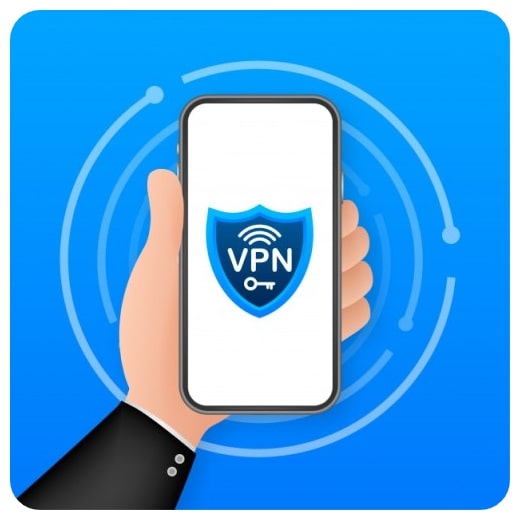
Again, VPNs provide a plethora of security advantages and are something that you should consider using even if you aren’t particularly concerned about your data privacy.
VPNs make it harder for both actual hackers and generic government snooping programs or software to gather data on you and your browsing habits.
If you’re at all concerned with an increasing lack of digital privacy in recent years, a VPN is a must.
VPNs are also useful because they allow you to use public Wi-Fi networks or browse sites on secure Wi-Fi networks without as much risk to your personal computer or data.
Most people, even with the above-described privacy advantages, use VPNs because they want to download or stream content that is banned in their home country.
If you’ve ever wanted to take advantage of a premium streaming service or watch a TV show that isn’t available in your country, using a VPN is the way to go. Such a practice is also much safer than downloading pirated content since you don’t have to worry about accidentally downloading a Trojan or malware virus in the process.
Other VPN Benefits
Many VPN providers include ancillary benefits in addition to their general encryption.
For instance, top-tier VPN services will add some antivirus protections or firewalls. This may or may not be very valuable depending on whether or not you already have excellent antivirus installed on your computer. Other VPN services include identity protection services or great password managing services to round out their features.
However, the vast majority of VPN services include an additional feature called IP address obfuscation. In a nutshell, IP address obfuscation involves the VPN service giving you a new IP address designed to replace your primary IP address.
This, in turn, will allow you to effectively mask your browsing identity wherever you go. Even websites that passively scoop your IP address will get this dummy IP address instead of your real one, so any data gathered won’t be accurate.
Why Use HTTPS?
So, which is better, or which should you focus on: VPNs for HTTPS encryption?
The right answer is: both. VPNs and HTTPS encryption cover different aspects of holistic data security, so anyone looking to maximize the protection as they traverse the Internet will want to take advantage of both technologies.
How Both Help Your Security and Work Well Together
VPNs and HTTPS encryption are great technologies to combine because each covers several weak spots of the other.
For instance, HTTPS encryption has to be enabled on your browser and on any website you potentially visit. So it involves two steps of security that won’t always be fulfilled; for instance, you may need to visit an HTTP website every once in a while and won’t be able to demand HTTPS encryption of the website owner.
If you also have a VPN, you’ll at least have some level of encryption in place at all times. VPN encryption stays with your computer no matter where you go.
But HTTPS encryption can double the security you experience if you do visit HTTPS websites. It provides end-to-end encryption, whereas VPNs can only encrypt data transfers between your device and EPN server from your provider.
HTTPS encryption is also normally vulnerable to certain types of digital attacks. For instance, root certificate attacks are big issues that still haven’t been ironed out (though newer HTTPS developments may help eliminate this issue). VPNs provide another layer of security that can make it even more difficult for any potential hacker to get into your computer and personal information.
Furthermore, HTTPS encryption is, measure for measure, a little less secure than VPN encryption (though this largely depends on the strength of a given VPN service – some services are much better than others).
But What if You Have To Use One or the Other?
The big accessibility difference between VPNs and HTTPS encryption is that one of these technologies requires you to pay a little extra and install third-party software on your computer.
VPNs are primarily offered by VPN providers, so you’ll need to pay for the software or pay for a subscription to keep the software for a year or more. This, in turn, requires you to do a bit of research on the best VPN providers for your needs. We’ve got a ton of great guides to this extent to make your search easier.
Still, it does mean that most VPNs are premium, although great free VPNs are hard to find. On the other hand, visiting HTTPS-encrypted websites is basically free, even if it cost you a little bit of time or convenience. All you have to do to maintain good HTTPS practices is take a look at the beginning of every web address you plan to visit and avoid any addresses that start with HTTP.
So technically, we’d recommend focusing on HTTPS encryption if you don’t have any cash or aren’t interested in installing a VPN on your device for one reason or another.
However, if you’re a website owner, be advised that HTTPS encryption does cost money in most cases. You can get SSL certification from third-party providers for anywhere from $20-$100: it all just depends on the provider and the timeframe of SSL certification. Most of the time, you have to renew certification every payment period (say, a year or so).
Alternatively, you’ll be able to find SSL certification included with many web hosting packages. For instance, if you use a shared web hosting service, many hosting service providers also include SSL certification with certain tiers of subscription.
Most web hosting providers don’t give you free SSL certification with their free or basic service packages, but include SSL certification as a perk as you move up the payment ladder.
You’ll have to compare the price differences, of course, but in many cases, such free SSL certification makes a hosting provider a great choice over its competitors.
VPN and HTTPS Vulnerabilities
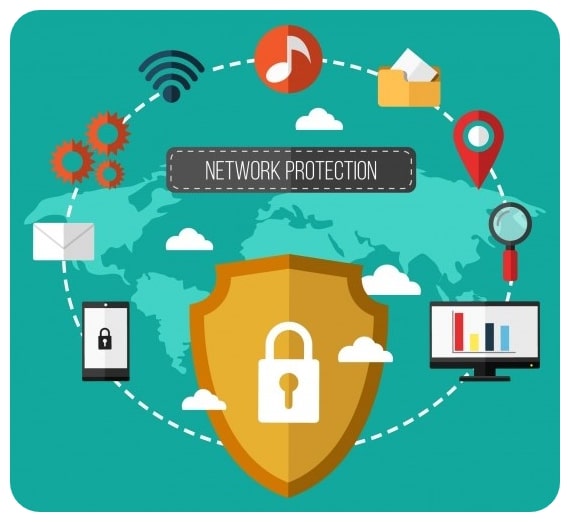
While both VPNs and HTTPS encryption are valuable technologies you should use for your digital travels, you should also have other forms of security in place.
These two tools cannot protect you from everything.
For instance, you should always have quality antivirus in place on any device you browse the Internet with.
Antivirus provides firewalls that are fine-tuned to prevent malware and other types of viruses from infiltrating your computer.
Furthermore, many top antivirus programs contain tools or technologies that can help warn you when you visit an unsecured site or if you’re about to download a potentially harmful file or program.
All told, antivirus programs contain several other layers of defense that can help take your computer and almost ironclad machine, mostly impervious to any type of digital attack.
Keeping your antivirus updated and constantly running, while used in conjunction with a VPN and when visiting only HTTPS-encrypted websites, will make it extremely difficult for any virus or hacker to get anywhere on your device.
Thankfully, antivirus doesn’t have to be exorbitantly expensive technology. You can find top-tier free antivirus programs that come with excellent firewalls, and even a few extra tools, that don’t cost you anything.
You can also look into paid software, which usually comes with even more tools, sometimes better scanning software, and additional technologies like password managers and protectors.
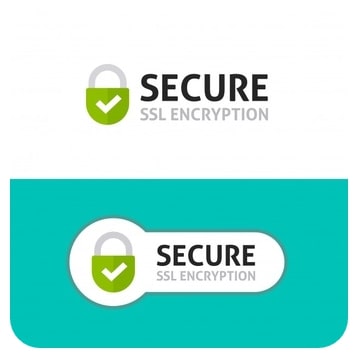
How you can best take advantage of HTTPS encryption depends on whether your website owner or if you’re more concerned about visiting safe sites.
If you own a website, it’s a must for you to purchase and maintain HTTPS encryption for all of your visitors.
Such a practice will both protect your personal data from anyone trying to do harm to your website or bank accounts and make your website a much safer place for any visitors.
This is doubly true if you host an online shop; if your customers are putting their bank account information into your website, you have to provide a secure service so no one gets their bank account information stolen. On a related note, websites that have HTTPS encryption rank higher on Google through its search algorithms thanks to providing a safe experience for their users.
If you don’t have your own website, you should still try to take advantage of HTTPS encryption whenever possible by avoiding websites that lack it. This means going on websites that start with just HTTP as little as possible. These websites are unsecured, and more often than not an updated web browser will alert you whenever you’re about to visit an unsecured site.
Only visiting HTTPS websites will go a long way toward keeping yourself protected from malware and data scoopers.
Is HTTPS Enough Encryption?

Not for total security. HTTPS protocols only encrypt web traffic, not any other type of Internet activity.
For instance, if you play a web-based videogame, any traffic or activities related to your personal information will not be encrypted automatically.
Email programs are generally not encrypted, as it’s a different kind of traffic.
All of these extra services require separate encryption efforts. So HTTPS encryption helps overall, but it’s not enough by itself to ensure good digital security through and through.
Summary
Ultimately, both VPNs and HTTPS encryption are important parts of total Internet security no matter where you live or what you’re interested in. If you’re a website owner, HTTPS encryption is a must for both you and your visitors, and if you’re just a browser, you should always try to avoid HTTP-only websites as much as possible.
VPNs are valuable tools for everyone given the lack of digital privacy and data snooping concerns that world governments everywhere are making worse. In today’s digital world, you need to take your privacy into your own hands, and a VPN is a great way to start.
VPNs can make it much more difficult for hackers or governments to track your data and browsing habits and help you retain your privacy rights.
If anyone ever asks you whether VPNs or HTTPS encryption are more important, tell them that both matter and both should be prioritized.
You Might Also Like:



